Book Review: Algorithms to live by
How can we apply algorithms to improve decision making in real life?
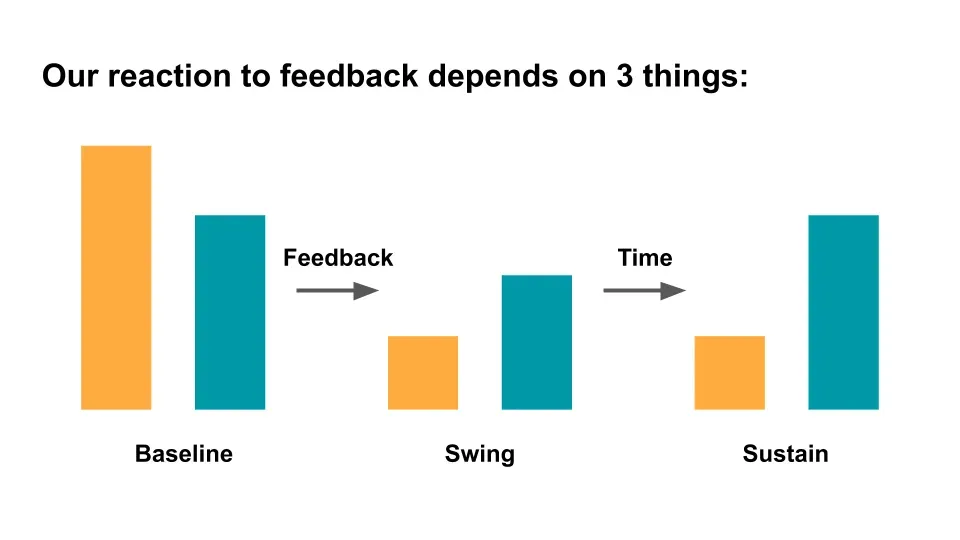
Over the holidays I read Thanks for the Feedback by Douglas Stone and Sheila Heen, and thought it was one of the better books I’ve read in the past year. It talks about how to make feedback conversations more productive, by explaining the types of feedback and common problems during feedback sessions.
I’ve summarised the book below and added some of my own thoughts. Note: Many of the points will be outright quotes from the book.
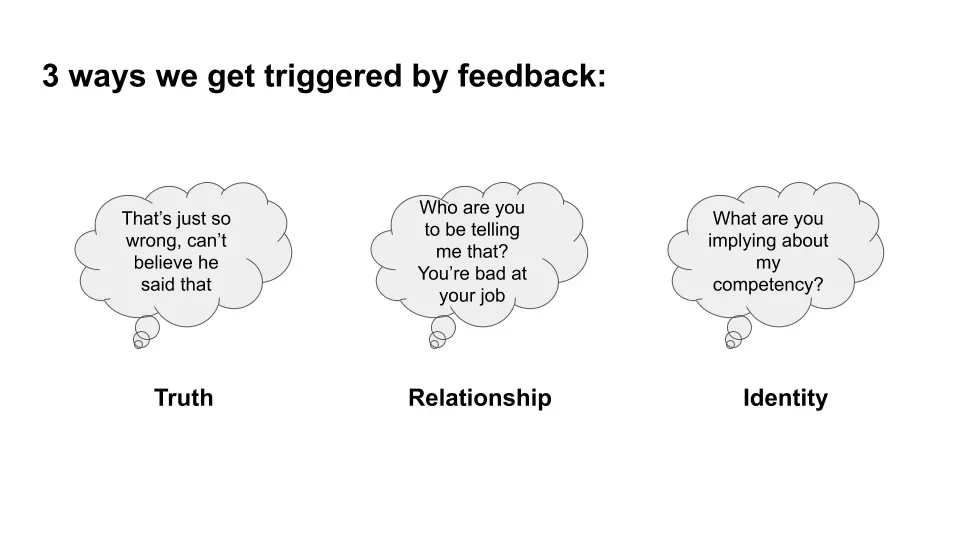
LL: I have definitely not accepted feedback before, to my detriment, when I felt triggered. Just because I don’t like the person, doesn’t mean that the feedback is inaccurate. Becoming aware of why this is happening and learning to identify it is the first step in becoming better myself.
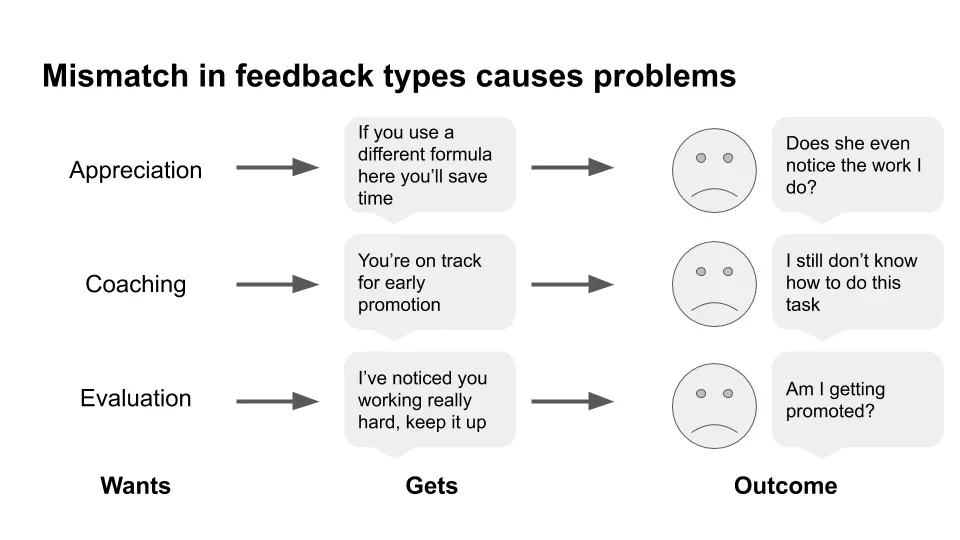
LL: I vastly prefer getting coaching or evaluation at work, but that’s obviously not the case for everyone. This explains a lot about why people feel underappreciated or misunderstood. It kind of reminds me of the Five Love Languages framework. I’m starting to explicitly ask for coaching and evaluation as opposed to appreciation at work.
LL: I’ve always preferred asking for examples whenever feedback is given, and will now be double checking on the interpretation piece explicitly as well. Just like arranging an effective meeting, making sure that expectations are on the same page after the feedback convo is key.
LL: This will be familiar to people who’ve read about behavioural finance and Kahneman’s work there. The simplistic takeaway is we’re wrong about everything, all the time, especially about ourselves.
LL: I hadn’t realised this was a thing, but now that they mentioned it, it makes a lot of sense. I now see so many examples of it in past conversations I’ve had. Note again that calling it out explicitly is the solution. It will be uncomfortable but make for a more effective situation.
LL: You and your nemesis may both be competent, but have a bad working relationship because of how incentives were structured in your organisation.
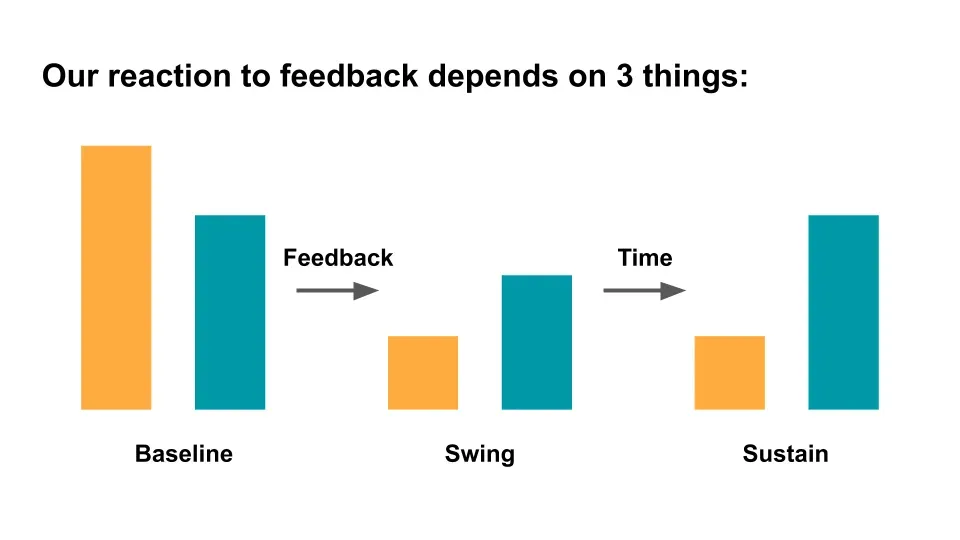
LL: Assuming good intent of the feedback giver 4, they actually want to help us get better. If not, they wouldn’t be taking the time to tell us what to change. And we can change for the better.
We have to accept three things about ourselves:
Take responsibility for your part, but don’t go to an extreme in denying all responsibility or taking all the blame
LL: I’ve been in either extreme before, either dodging blame or excessively self-flagellating. Neither are productive and also make you look even worse.
LL: I like this second score concept; it’s related to the old cliche about how it’s not how many times you fall but how many times you get up. Just because it’s a cliche doesn’t mean it’s bad though. I’ll likely write more about failure in the future, but it’s central to learning. That implies we will get bad feedback, and need to learn how to handle it.
LL: This is new to me but important. It can be overwhelming to get feedback from someone or during some time. If the person truly has your best interests at heart, they’ll understand that you need space. It’s usually telling when someone forces you to accept their point of view, that they have their own agenda in mind.
Feedback conversations are made of three parts:
Couple of ways to take action:
Understand the J curve: any time you are changing your habits, you are likely to get worse before you can get better. More importantly, you will feel worse before you get better
_LL: Waitbutwhy has also written before about how learning something new is difficult, precisely because that initial change is painful and unrewarding. It’s going to suck for some time before you start surpassing your first peak. I think of learning as consecutive curves (J or S, whichever shape floats your boat), which means you have to constantly make it uncomfortable and sucky in order to get better. _
LL: There are some things that we just can’t change about ourselves. You can’t stop me from slathering ridiculous amounts of butter at every dinner. Note that although the authors think that’s ok, *you still need to reduce the negative effect you’re having on others*. Don’t be a dick.
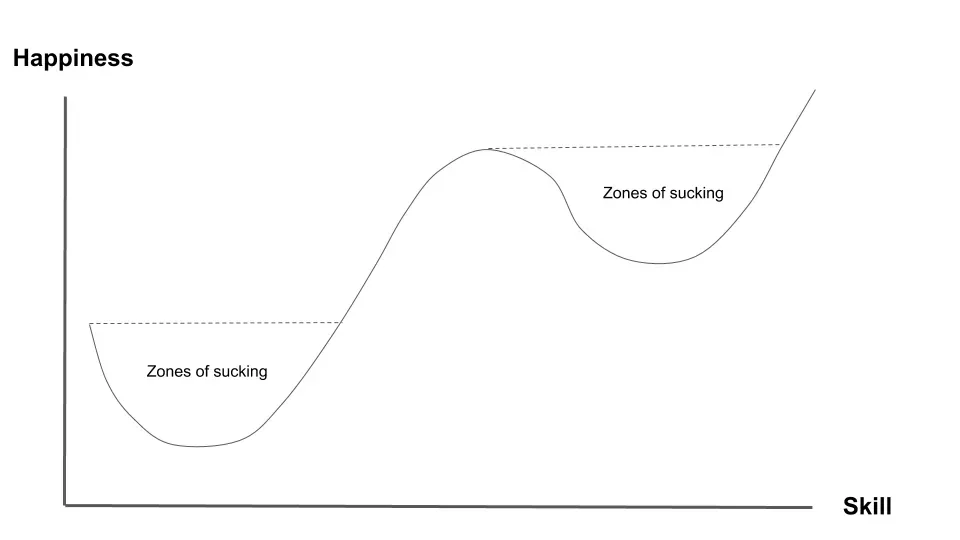
LL: I haven’t looked in depth yet, but I’m hoping the authors wrote more about how to give feedback more effectively as well. I’ve seen scarce examples of companies that promote a learning culture, Stripe is one exception that comes to mind, which might be why it’s so well regarded.
Overall, I thought the book was great and well worth the time spent. It’s written clearly and even has summary sections for easier browsing. It’s a quick read, and I’d encourage you to check it out, especially since we’re heading into annual review timing.
All coaching includes some evaluation as well, and can often be misunderstood. Evaluation can drown out the other types of feedback ↩
The authors talk about a gap map between my thoughts and feelings to my intentions to my behaviour to my impact on others to others’ stories about me ↩
Don’t accept everything that they say outright. Take their opinion as one input of a whole ↩
I’m sure we have received mean feedback before, or feedback givers that are just vindictive. It’ll be hard, but seems the best way forward is to just ignore them. ↩
It seems paradoxical to talk about assertiveness in the context of receiving feedback, but feedback is not a one way activity. Without your point of view the giver will be unaware if what they’re saying is useful, right, or in line with what you think ↩
Get my next essays in your inbox:
Comments